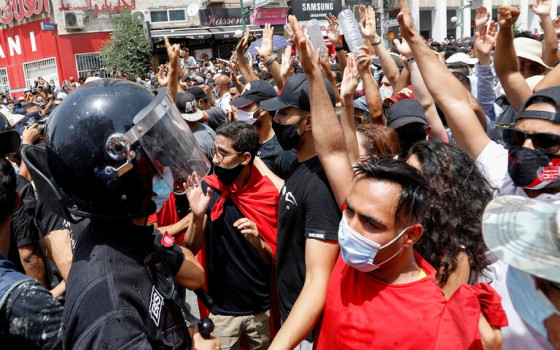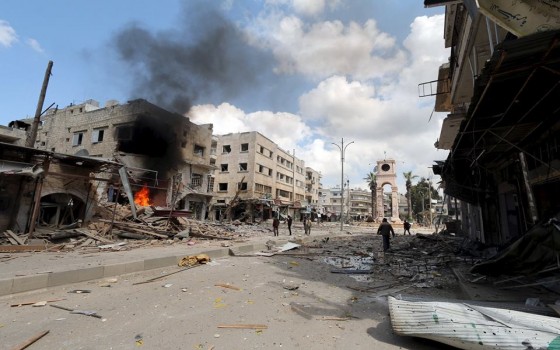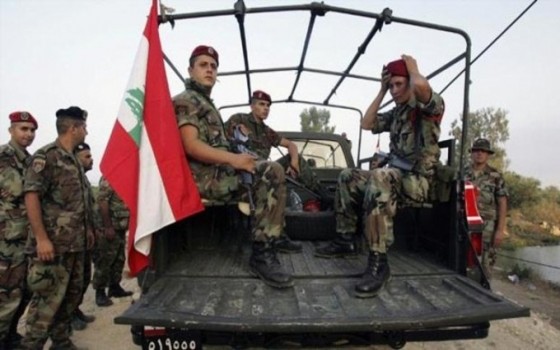
UN experts: Condemning the arrests of human rights defenders in Tunisia and the silencing of a political protest movement in Algeria

- Europe and Arabs
- Wednesday , 2 October 2024 10:6 AM GMT
Capitals: Europe and the Arabs
An independent UN expert said that the arrest of migrant rights defenders and the general climate of hate speech and smear campaigns against them in Tunisia is "further evidence of the country's retreat from its commitment to protecting human rights." According to the UN daily news bulletin, a copy of which we received this morning.
In a statement issued yesterday, Tuesday, the Special Rapporteur on the situation of human rights defenders, Mary Lawlor, said that "it is appalling to hear official statements accusing those who assist migrants, asylum seekers and refugees of being traitors and foreign agents." She warned that this would only create fear and stigma, and could lead to the suspension of life-saving activities, leaving hundreds of vulnerable people in precarious conditions, especially those coming from sub-Saharan Africa who were the target of attacks.
The UN expert's statement explained that in early May, after the interior ministers of Tunisia, Algeria, Libya and Italy met to discuss irregular migration, security forces expelled hundreds of migrants and refugees from the country. This included women, children and asylum seekers who camped outside the offices of the United Nations High Commissioner for Refugees (UNHCR) and the International Organization for Migration (IOM).
This was quickly followed by the arrest and detention of Abderrazak Karimi, the project manager at the Tunisian Refugee Council, and the council’s president, Mustapha Jamali, who were questioned by criminal police about the source of their organization’s foreign funding, before being placed in custody and charged with illegally harboring people in Tunisia, according to the rights expert’s statement.
Project work
The UN expert noted in her statement that while he did not directly name the human rights defenders or the Tunisian Refugee Council, Tunisian President Kais Saied accused the leaders of organizations that assist and shelter “irregular migrants” from sub-Saharan Africa of “receiving huge amounts of money from abroad” and of being “traitors and mostly foreign agents.”
She added that the Tunisian Refugee Council, which works with the United Nations High Commissioner for Refugees, launched a call for proposals in late April for hotels to house 57 unaccompanied migrant children from Sfax to Tunis, in coordination with the local governor. The call sparked a media smear campaign, claiming that housing Africans in Tunisia threatens the country’s national security.
The Special Rapporteur said: “The migrant rights defenders (Karimi and Jemmali) were doing perfectly legitimate work, yet they are being detained without trial in overcrowded and unsanitary conditions, in complete violation of international human rights conventions ratified by Tunisia.”
She stressed that migrant rights defenders take great risks to uphold the internationally recognized human rights of migrants, asylum seekers and refugees, adding: “They must be released and not treated as criminals.”
In another context, independent UN experts said that the Algerian Court of Appeal should quash the prison sentence issued against Hirak poet Djamila Ben Touis and acquit her of all charges.
In a statement issued on Monday, the independent experts expressed outrage at the government’s practices aimed at “silencing a political protest movement through the arbitrary arrest and detention of people who dare to stand up and speak out.”
“We are deeply concerned about the continued detention of Ms. Djamila Ben Touiss, and the two-year prison sentence and a fine of 100,000 Algerian dinars handed down to her in July for her participation in the social protest movement (known as) Hirak,” they said.
They noted that the criminal charges against Ben Touiss appear to be directly related to her exercise of her right to freedom of expression, including artistic expression. “We urge the Court of Appeal to quash her sentence and acquit her of all charges that are contrary to international law,” they added.
A chilling effect
The rights experts said that Ben Touiss had participated through her poems and patriotic songs in the Algerian Hirak, a political, social and economic protest movement that emerged in 2019, after the end of Algerian President Abdelaziz Bouteflika’s term.
Algerian protesters have embraced Ben Touis’s texts, her songs about the Hirak have been widely shared on social media, and she has regularly recited her poems publicly in Paris.
“When an artist who speaks on public affairs is arbitrarily convicted of deliberately spreading false or malicious news to the public that is likely to harm public security or order, the chilling effect on the entire population is clearly intended,” the experts said.
Terrorism charge
The independent experts also expressed concern about the preliminary charges against Ben Touis of undermining the integrity and security of the State and belonging to a terrorist entity.
“Ben Touis’s prosecution on terrorism charges under Article 87 bis and other national security crimes of the Penal Code could undermine freedom of expression and association in Algeria more broadly,” they said. “This could particularly affect the artistic and cultural sectors, Algerians living abroad, and the civic space as a whole.”
They expressed hope that Algeria would comply with its international obligations to guarantee the right to freedom of expression in the country when Ben Touis’ appeal is heard before the Algiers Judicial Council on 2 October.” Special Rapporteurs and independent experts are appointed by the Human Rights Council in Geneva, an intergovernmental body responsible for the promotion and protection of human rights around the world. The rapporteurs and experts are tasked with studying human rights situations and submitting reports thereon to the Human Rights Council. It should be noted that this position is honorary, as these experts are not employees of the United Nations and do not receive a salary for their work.












No Comments Found